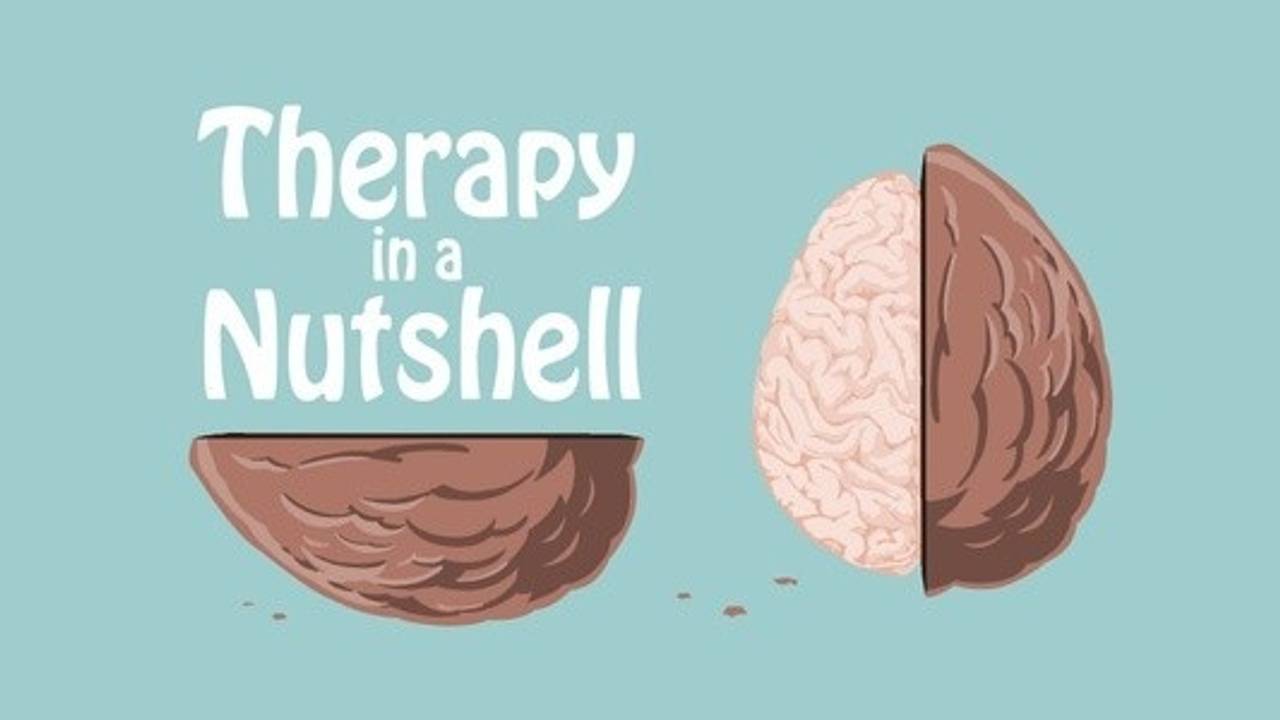Equine-facilitated psychotherapy (EFPT), also known as horse therapy and equine-assisted psychotherapy, is a form of psychotherapy (talk therapy) that uses horses as instruments for therapeutic healing. This hands-on therapy uses tools, props, and other creative methods that allow a person to reenact and explore past experiences.
Typically, the equine therapist does not offer solutions but gives a person a safe space to reflect on what they notice and feel during the session.
![]()
Tom Ervin / Getty Images
This article explains what equine therapy treats, as well as what an equine therapist does during a session. It also discusses the training and certification process involved in becoming an equine-assisted psychotherapist.
What Equine Therapists Treat
Equine-facilitated psychotherapy has been found to be useful for treating people with a variety of conditions and/or concerns, such as:
Equine therapy may also help clients learn to trust other beings, as well as themselves. This is especially helpful for individuals processing traumatic experiences.
Why Horses?
Horses are prey animals and are very sensitive to their environment. They live in the moment and can provide instant feedback on the situation they are experiencing. This makes them a very useful part of the therapeutic team as they can reflect a person’s emotional experience.
Horses have unique personality traits that may remind a person of aspects of themselves or others in their life. In some cases, clients may feel like they can engage in a relationship with a horse that feels safe and free from criticism. In other cases, the horse may embody the person or situation they are struggling with.
In both circumstances, the horse can be a tool for processing and healing.
What Happens During Equine Therapy?
A licensed equine therapist and a horse professional conduct the EFPT session together to help the client work toward their therapeutic goals.
During a typical session, a client may groom, feed, walk, and engage in games or exercises with one or multiple horses. Props may be offered that allow them to process an experience symbolically. For example, a client may set up an obstacle course and observe how the horse interacts with the props.
Both during and after the activity, the equine therapist can observe and interact with the client to identify behavior patterns, as well as help process thoughts and emotions.
How to Become an Equine Therapist
There is no specific independent certification that is required to practice EFPT. However, any individual who offers mental health counseling or psychotherapy must be properly credentialed and legally qualified to practice in their state or other jurisdiction.
Some therapists may seek an optional certification from an organization of professionals specializing in this form of therapy.
The Certification Board for Equine Interaction Professionals (CBEIP) is an independent board that certifies mental health and education professionals through an exam, as well as a review of relevant experience.
The CBEIP is not part of any other certifying organization. There are significant prerequisites to registering for the examination. The CBEIP does not certify horse specialists or riding instructors.
Equine Assisted Growth and Learning Association (EAGALA) certifies both mental health professionals as well as horse specialists through its certification program. To become certified, a person must complete an online course, attend an onsite training program, pass an exam, and submit a professional portfolio.
Therapy with animals is becoming more popular, along with many other alternative forms of psychotherapy, such as art therapy and dance/movement therapy.
Summary
Equine-facilitated psychotherapy is an experiential therapy that may be used to treat a variety of conditions and concerns. Some include autism, ADHD, and PTSD.
During a session, clients may interact with one or multiple horses in structured or unstructured ways. While a horse specialist helps with handling the animal(s), an equine therapist works with a person to help them process what they are thinking and feeling.
A Word From Verywell
Equine-assisted psychotherapy is an evidence-based practice. This means that research supports how effective it is when it comes to treating symptoms related to trauma and stress.
Still, it may or may not be covered by your health insurance plan. If you are considering equine therapy and are enrolled in a plan, speak to your insurance provider about coverage.
Frequently Asked Questions
-
What is an equine therapist called?
An equine therapist may also be referred to as an equine-assisted psychotherapist or an equine-facilitated psychotherapist.
-
What are different types of equine therapy?
Different types of equine therapy include therapeutic horseback riding, hippotherapy, equine-assisted learning, and equine-assisted psychotherapy.
Many therapists realize the importance of animal interactions in their clients’ lives as well as the potential for this in their psychotherapy or counseling setting. Bringing horses into the treatment environment in an ethical and effective way requires a specialized skillset. The Equine-Assisted Mental Health (EAMH) practitioner certificate program is open to mental health professionals and graduate students who want to enhance their clinical practice through incorporating interactions with horses and the equine environment. You will receive the education, training, and supervision/consultation necessary for ethical practice within your scope, including techniques tailored to your clinical interests and the clients you serve.
Want to learn more about the EAMH practitioner certificate?
Learn More
View available schools
Pros and Cons of an Equine Therapist Career
Equine therapists are professionals trained to work with horses and help disabled individuals work and bond with horses as a means of therapy. Read the following pros and cons of this career to help you decide if being an equine therapist is the right choice for you.
Pros of Being an Equine TherapistOffers opportunities to help physically, mentally and emotionally handicapped patients**Career provides physical activity and fitness**Career offers variety in duties (coordinating training, working with horses, counseling patients)*Some employers do not require a college degree (though they may require certification)*Mental health professionals can add equine therapy to their expertise by enrolling in a short graduate certificate program (just 15 hours)****Cons of Being an Equine TherapistSome jobs may require master’s degrees*Work may require spending time outside in various weather conditions (heat, damp)*Employers typically require certification or licensure*Work may involve being around unpleasant substances and odors (barns and stables)***Low salary (salary for head therapeutic riding instructors was lower than the national average as of May 2014)*****
Sources: *Online job postings, **Tarleton State University, ***Waubonsee Community College, ****Texas Tech University, *****PayScale.com.
Career Info
Equine-assisted therapy provides mental, physical and emotional therapy to patients with learning, physical and behavioral difficulties. It’s also used to help treat other conditions, such as cerebral palsy, autism and multiple sclerosis, as well as to help cancer patients deal with the fear and challenges they face as both patients and survivors. Equine therapy can help improve a patient’s self-awareness, self-confidence and discipline.
Job Description and Duties
Equine therapists are professionals who work with horses and help patients and customers accept horses as a means of therapy and comfort. They encourage participants to communicate with horses and teach them simple tasks using eye contact and body language. The therapists teach riding lessons to patients and participants. Equine therapists schedule therapy sessions, workshops and basic horse training.
In addition to working with the horses, equine therapists perform the role of trained counselors. They may assess new students, determine those students’ needs and implement therapy and training sessions based on those needs. Other duties may include scheduling functions, fundraisers and certification and training programs. They work with the patients on a regular basis, from the time they join the facility through their discharge. Because of the disabilities exhibited by many of the patients, therapists must possess patience, compassion and understanding.
Job Prospects and Salary
According to a PayScale.com report, most head therapeutic riding instructors earned wages that ranged from around $22,000 to $52,000, with bonuses, tips and overtime pay included in these figures. This report, dated July 2015, was based on a small data group.
What Are the Requirements?
Education and Training Requirements
To become an equine therapist, you must have at least a bachelor’s degree in an animal science or counseling-related field, although some employers require a master’s degree. Some schools offer graduate certificate programs for individuals who have graduate degrees in either animal science or a counseling-related field. In addition to coursework, students may participate in seminars and workshops to obtain hands-on training working with the horses. Course topics may include therapeutic riding instruction, equine studies, Professional Association of Therapeutic Horsemanship (PATH) International standards and contraindications, companion animals, evaluation of horses and general horsemanship.
Job Postings from Real Employers
Requirements for equine therapist careers tend to vary by employer, although formal training and work experience appear to be the most common requirements. Most employers also require applicants to have necessary certifications. The following is a sampling of open job postings from May 2012:
- A Texas equine therapy facility is seeking an experienced and detail-oriented individual to fill a full-time position as therapeutic riding instructor and education coordinator. Duties include scheduling and teaching riding lessons as well as coordinating workshops, training courses and specialty certification. Applicant must have PATH Intl. advanced or master certification and experience managing workshops and special events. Applicant must also be proficient with Microsoft Windows suite. Employees receive a competitive wage and benefit package.
- A residential equine center in Utah is seeking an experienced equine therapist to fill a full-time position in its Mona facility. Applicant must have at least a bachelor’s degree and 4 years of experience in this field. Working under a clinical director or executive, candidate will perform orientation on new students, provide psychosocial assessment on students, plan a course of therapy based on patient needs, and provide weekly and regular wilderness therapy sessions. The therapist will also plan patient discharge and provide a discharge summary on patients after they’ve departed.
- A national child help organization in California is looking for an experienced wilderness/equine therapist to work in its facility. Candidate must have a master’s degree in social work or a related field, along with at least 1 year of experience working with children in a residential treatment program. Licensed interns who have at least at least 3 years of related experience will be considered for this position. Candidates must also have a clean driving record, must pass a criminal background check and should possess Equine Assisted Growth and Learning Association (EAGALA) certifications. Experience with hiking, fishing, boating, camping and other outdoor activities is a plus for this hands-on position. Applicants must enjoy the outdoors and working with horses and children.
Top Skills for Equine Therapists
In addition to completing a formal training program and obtaining certification, candidates should possess the following skills and qualities for careers as equine therapists:
- High level of organization
- Excellent verbal and written communication skills
- Compassion
- Interest in working with children and adolescents
- Ability to work with and be comfortable around horses
How to Make Your Skills Stand Out
Obtain Certifications
Equine therapists can obtain certification through EAGALA, a non-profit organization that promotes equine-assisted therapy. To obtain certification, applicants must complete the first of a 2-part EAGALA training module and submit a personal development portfolio. Upon acceptance of the portfolio, candidates then complete the second training module. EAGALA also offers advanced certification programs, which may be required for employment as an equine therapist. Candidates can also obtain certifications through PATH Intl., which offers therapeutic riding instructors three levels of certification: registered, advanced and master.
Other Careers to Consider
In spite of your love for horses and your desire to help others, you may still be uncertain if this is the right career choice for you. There are other careers you may consider that offer better wages, better career outlooks or just less education and training requirements. Here are a couple of possibilities worth considering.
Animal Trainer
If you enjoy working with animals but aren’t sure if equine-assisted therapy is what you’re looking for, you may want to consider a career as an animal trainer. Being an animal trainer can give you the opportunity to work around various animals. Most animal trainers learn through on-the-job training. According to the U.S. Bureau of Labor Statistics (BLS), employment of animal care and service workers was predicted to grow 23% between 2010 and 2020. The BLS also reported that these workers earned a mean annual wage of around $31,000 as of May 2011.
Rehabilitation Counselor
If animals aren’t really your thing but helping others is, then you might consider becoming a rehabilitation counselor. Rehabilitation counselors help emotionally and physically disabled individuals learn to live independently. To become a rehabilitation counselor, you’ll most likely have to have a master’s degree. Some employers may hire you with a bachelor’s degree, but master’s degree programs are more common. You may also be required to obtain licensure and certifications as a counselor. According to the BLS, rehabilitation counselors were predicted to see an employment growth of 28% between 2010 and 2020. As of May 2011, these workers earned near $38,000 annually, as reported by the BLS.



